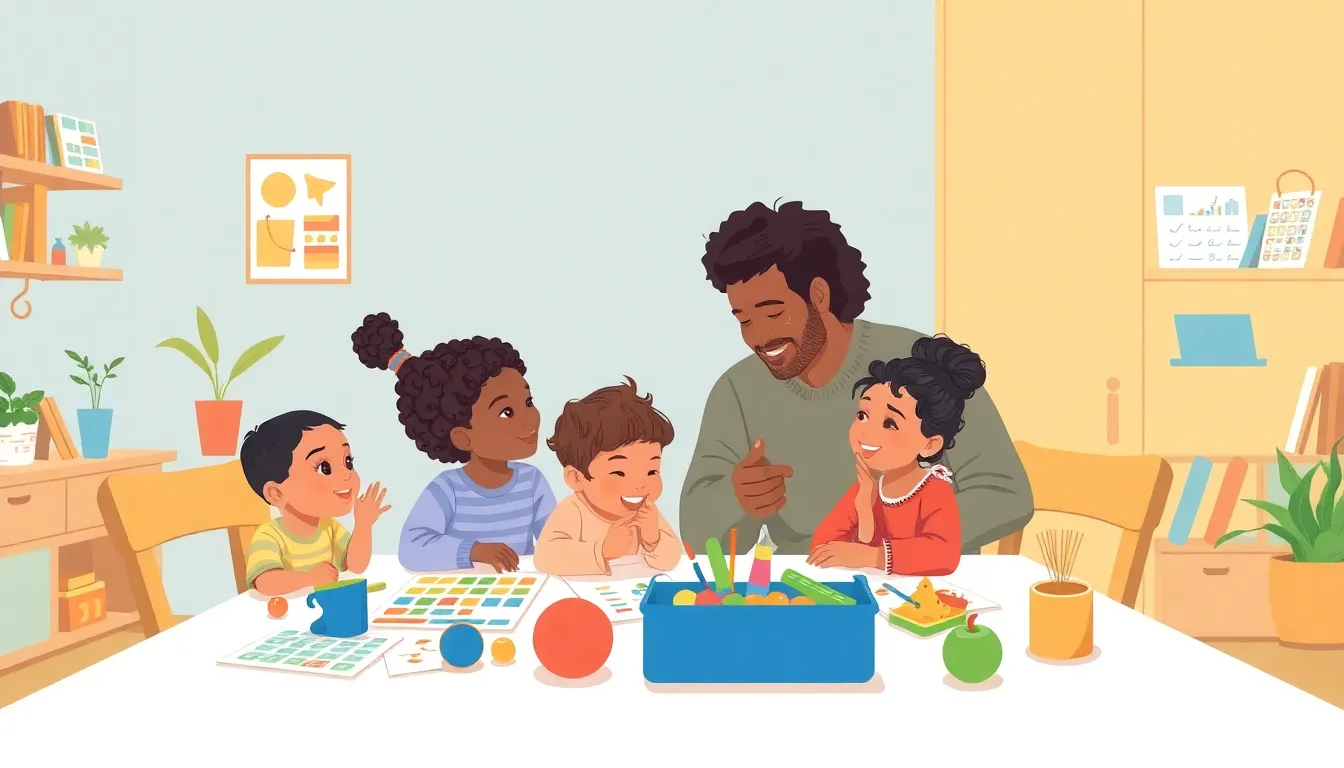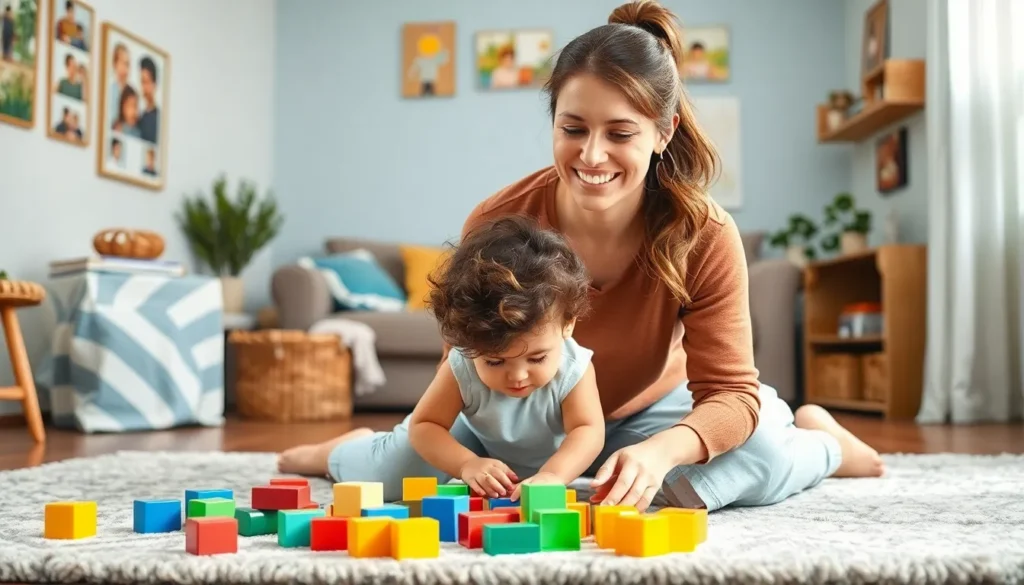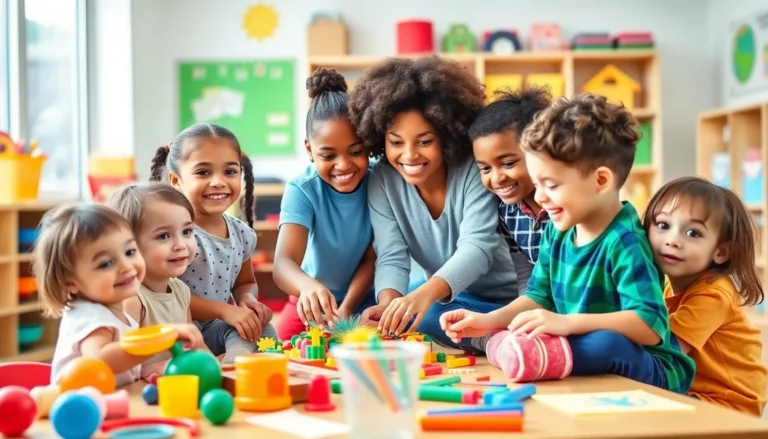Table of Contents
ToggleParenting can feel like a rollercoaster ride—thrilling, terrifying, and sometimes downright messy. Between diaper disasters and the endless quest for the elusive “perfect” bedtime routine, parents often find themselves in uncharted territory. But fear not! Navigating this wild adventure doesn’t have to be a solo mission.
Understanding Parenting Tips
Parenting involves unique challenges that require strategy and insight. Effective parenting tips guide families through the complexities of child-rearing.
The Importance of Effective Parenting
Effective parenting lays a solid foundation for a child’s emotional and social development. Secure attachments foster resilience and self-esteem. Positive interactions enhance communication skills and nurture empathy. Research shows children benefit greatly from consistent routines, especially during early years. Setting clear expectations helps establish boundaries, promoting a safe environment. Engaging in active listening cultivates trust, allowing children to express their feelings openly. Those techniques strengthen family bonds and create a supportive atmosphere for growth.
Different Parenting Styles
Different parenting styles include authoritative, authoritarian, permissive, and uninvolved approaches. Authoritative parenting blends warmth with clear guidelines, encouraging independence while maintaining structure. Authoritarian methods emphasize obedience and discipline, often at the expense of emotional connection. Permissive parents foster freedom, prioritizing their child’s desires but sometimes lacking boundaries. Uninvolved parenting generally sees minimal engagement, which can negatively impact a child’s development. Understanding these styles equips parents to choose approaches that best fit their family dynamics. Each style has unique implications that resonate throughout a child’s life.
Practical Parenting Tips

Establishing effective parenting practices can significantly enhance family dynamics and child development. Implementing routines and communication strategies plays a vital role in creating a nurturing environment.
Establishing Routines
Creating daily routines offers children a sense of security and predictability. Schedule consistent times for meals, play, and bedtime to foster stability. Incorporate fun activities into routines, making transitions smoother. Use visual aids like charts for younger children to help them understand expectations. Celebrate small successes in following routines to encourage positive behavior. Reassess routines regularly to adapt to a child’s changing needs and interests.
Communication Strategies
Open communication strengthens family bonds and enhances understanding. Use age-appropriate language when discussing feelings and expectations with children. Encourage listening skills by showing active interest in their concerns. Ask open-ended questions to promote conversation and critical thinking. Provide examples of effective communication techniques, such as using “I” statements. Recognize nonverbal cues, as body language can significantly impact communication. Reinforce the importance of empathy in conversations to nurture emotional intelligence.
Positive Discipline Techniques
Positive discipline focuses on guiding children with respect and encouragement. Effective methods help parents establish healthy boundaries and promote good behavior.
Setting Boundaries
Establishing clear boundaries creates a safe environment for children. Parents should define rules and communicate them consistently. They can engage children in discussions about expectations, giving them a sense of ownership. Offering choices within those boundaries allows kids to feel empowered while learning limits. Parents should also be firm yet gentle when addressing rule violations, ensuring children understand the importance of respect and responsibility in their actions.
Encouraging Good Behavior
Recognizing and reinforcing good behavior strengthens positive actions. Parents can praise specific behaviors rather than using vague compliments, which helps children understand what they did right. Consistent positive reinforcement, such as stickers or extra privileges, motivates children to repeat good behaviors. Incorporating fun activities that promote teamwork and cooperation can also foster a positive environment. Parents should model desired behaviors, demonstrating the values they wish to see in their children, thus creating a more harmonious family dynamic.
Parenting Resources
Parents benefit from utilizing various resources to enhance their parenting skills. Accessing the right materials can offer guidance and support throughout the parenting journey.
Books and Literature
Books provide valuable insight into different parenting techniques and child development. Titles such as “The Whole-Brain Child” by Daniel J. Siegel and Tina Payne Bryson offer scientifically-backed advice on nurturing a child’s emotional intelligence. “Parenting Science” by Gwen Dewar delivers research-driven strategies for addressing common challenges like sleep and discipline. Engaging with literature tailored to specific stages, such as toddlerhood or adolescence, equips parents with tailored approaches to support their children. Joining local book clubs or online forums fosters community discussions, allowing parents to share insights and recommendations.
Online Courses and Workshops
Online courses and workshops offer flexible opportunities for parents to acquire new skills. Platforms like Coursera and edX feature courses on parenting and child psychology, allowing parents to learn from experts at their own pace. Interactive workshops hosted by parenting coaches focus on topics like effective communication and positive discipline techniques. Engaging in these educational experiences promotes deeper understanding and practical application of parenting strategies. Attendance at local community center events provides face-to-face support, facilitating connections with other parents.
Parenting is a journey filled with challenges and rewards. By embracing effective strategies and understanding different parenting styles, parents can create a nurturing environment that promotes their child’s growth. Establishing routines and open communication lays the groundwork for emotional intelligence and resilience.
Incorporating positive discipline techniques fosters respect and encourages good behavior. Utilizing parenting resources further enhances skills and provides valuable support. Each step taken in this journey strengthens family bonds and equips parents with the tools needed to navigate the complexities of raising children. With dedication and love, parents can truly make a lasting impact on their child’s development.







